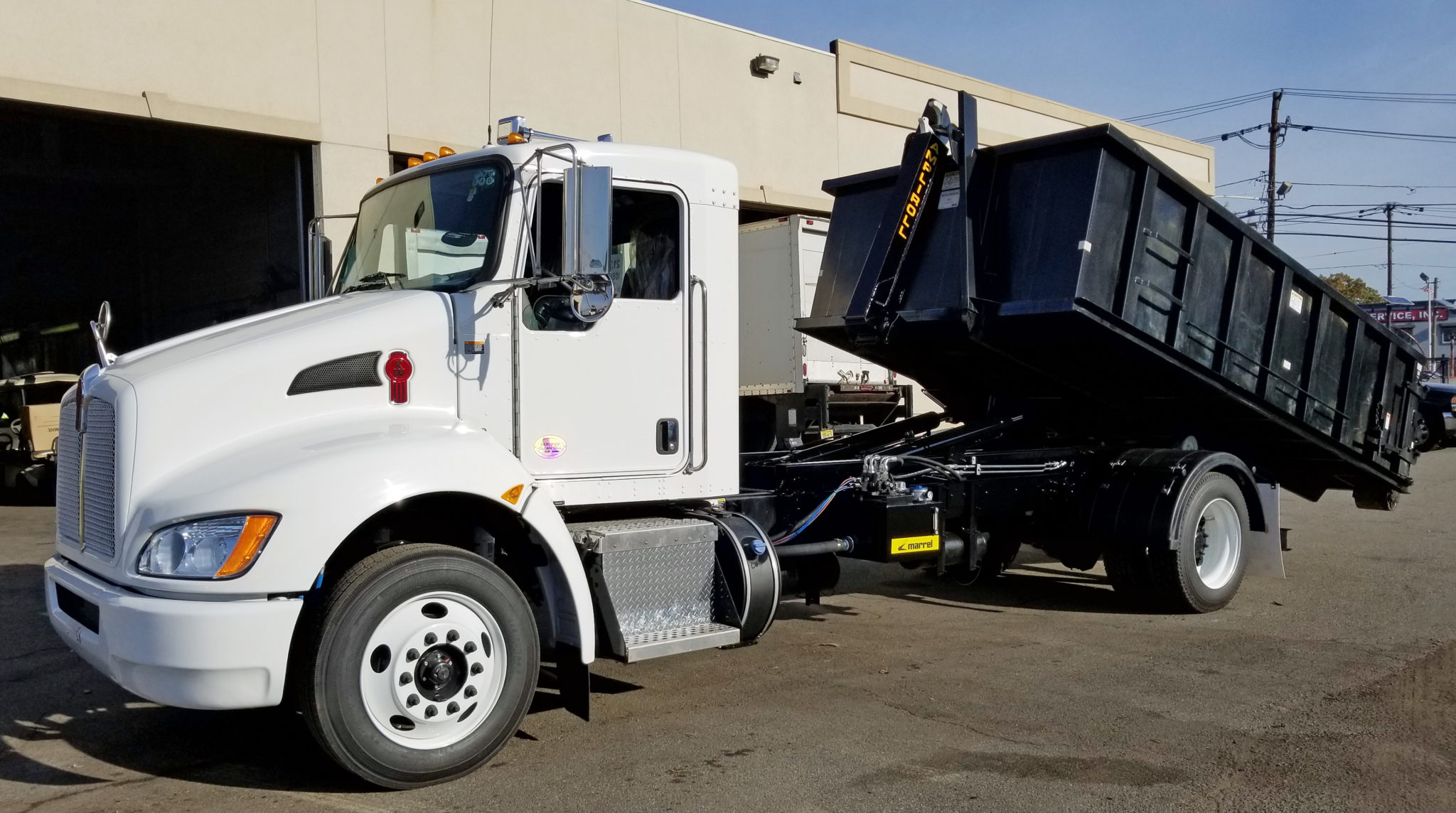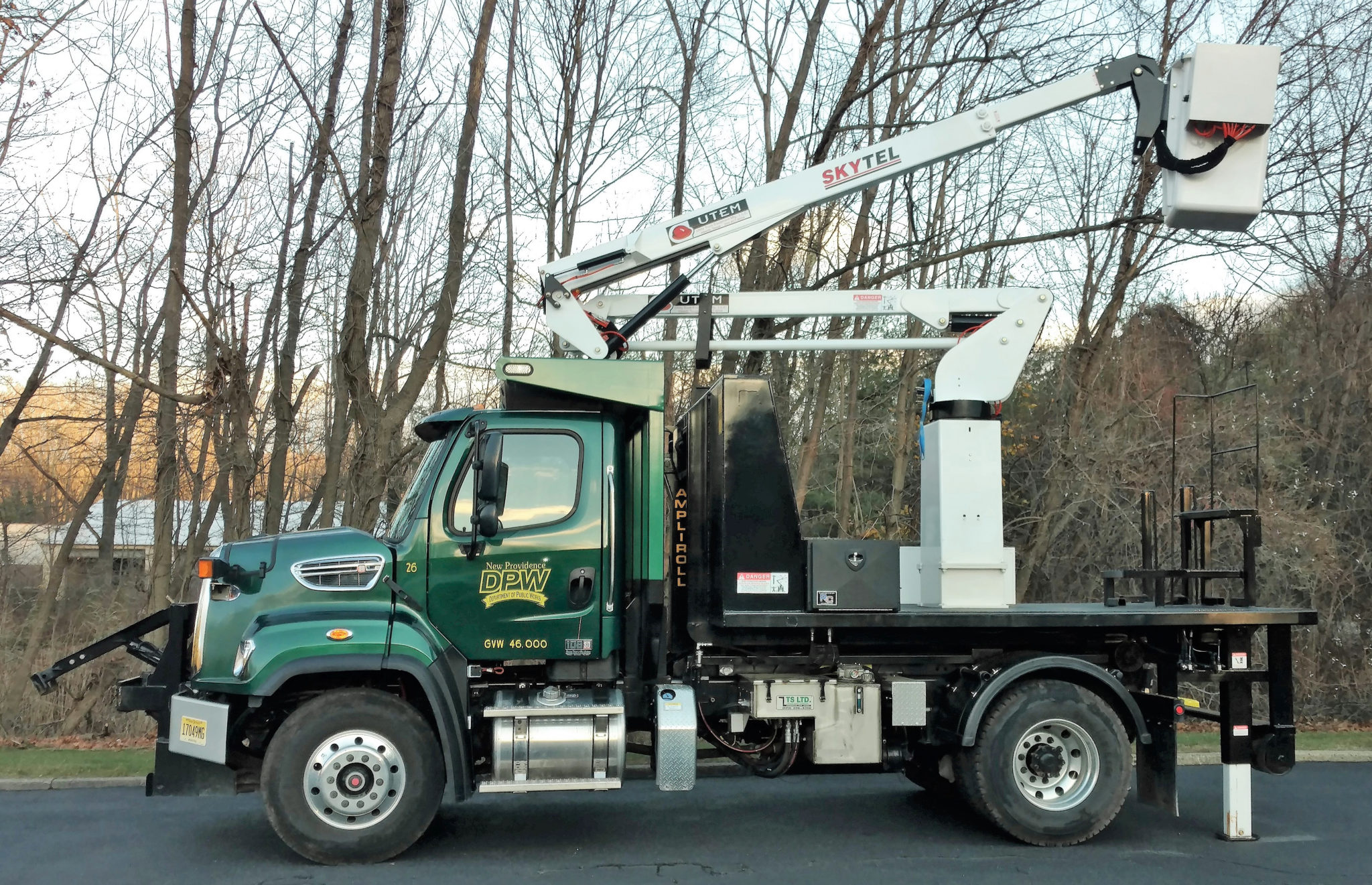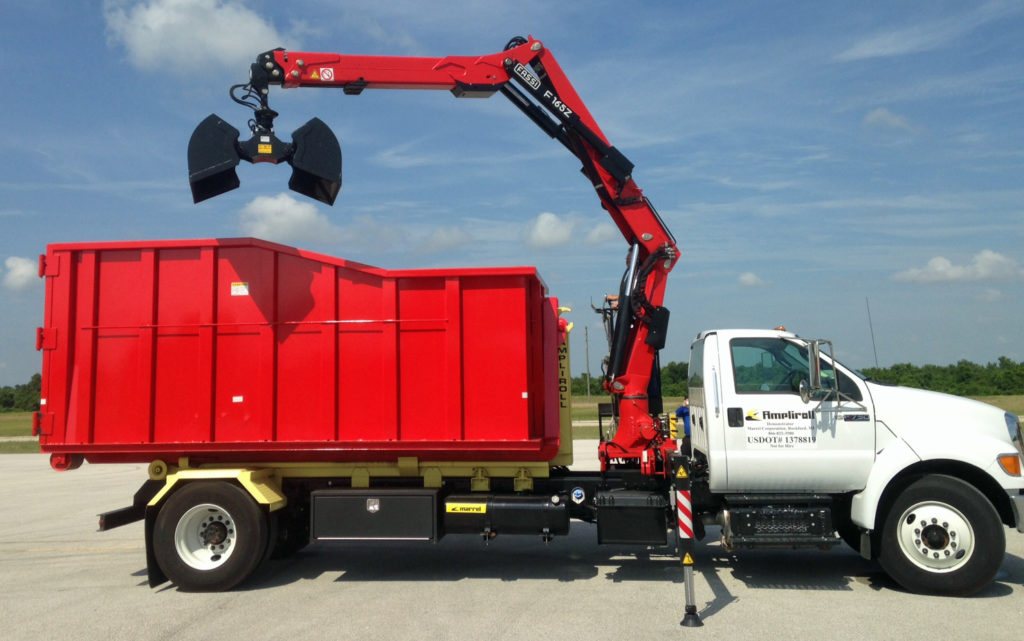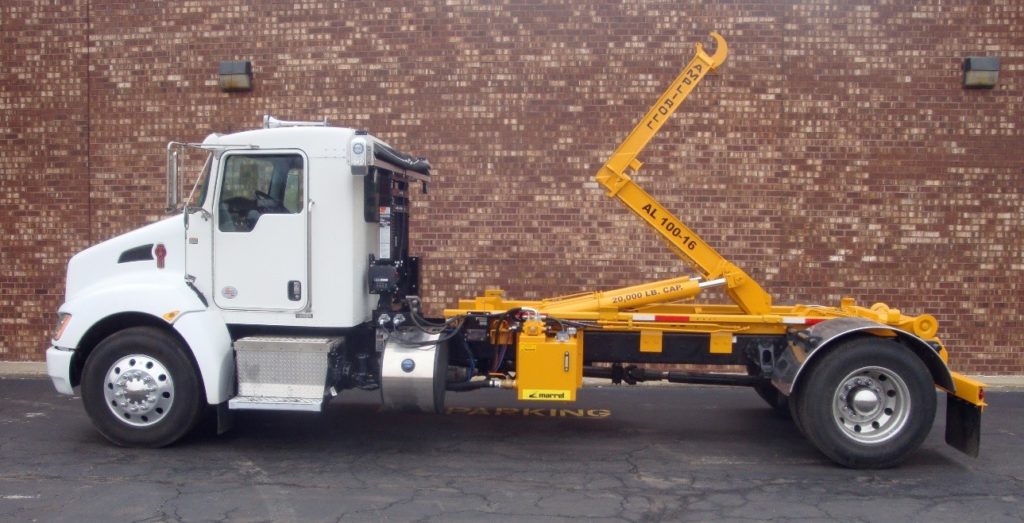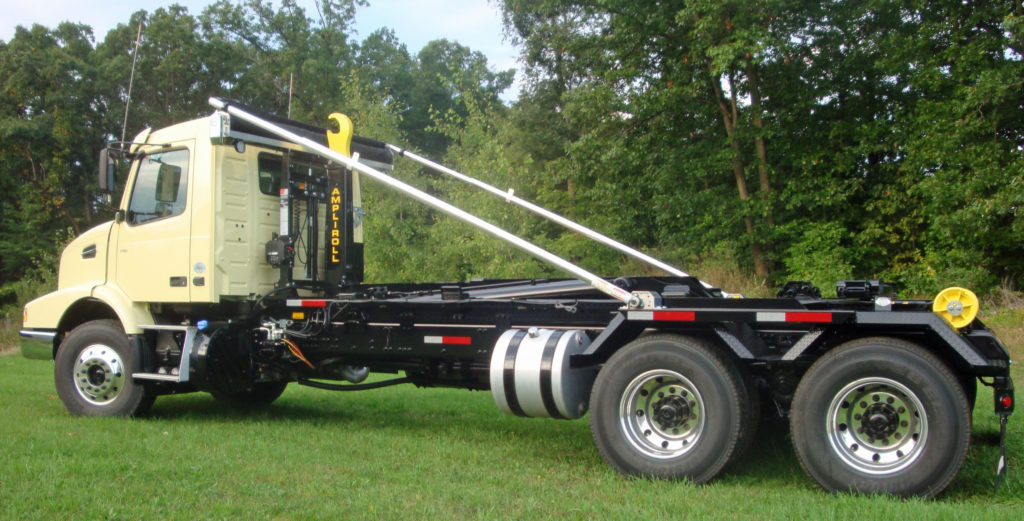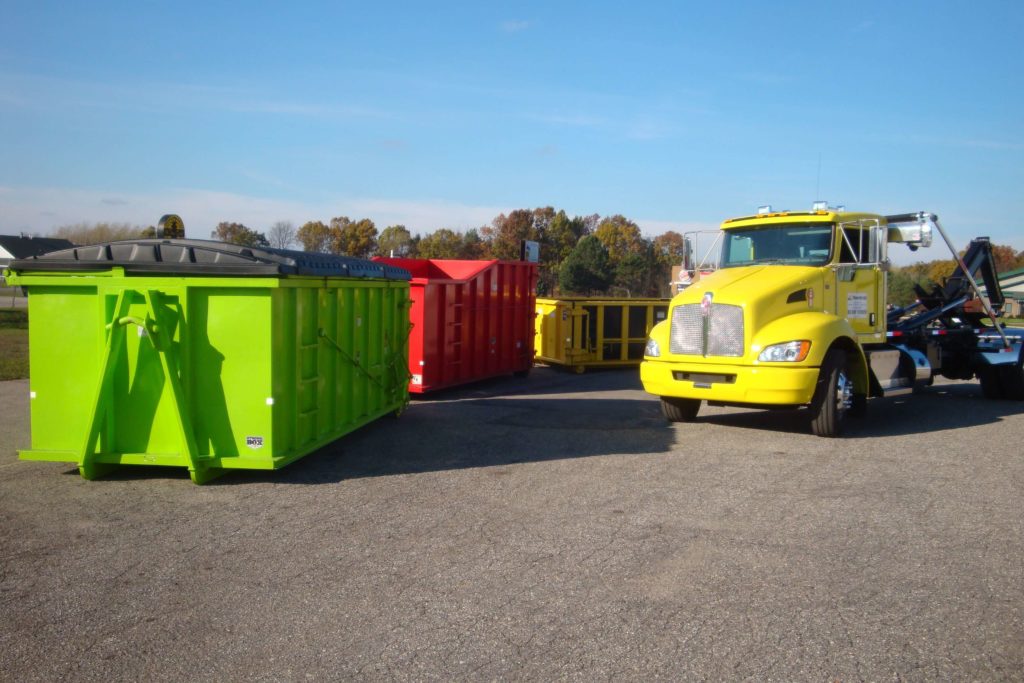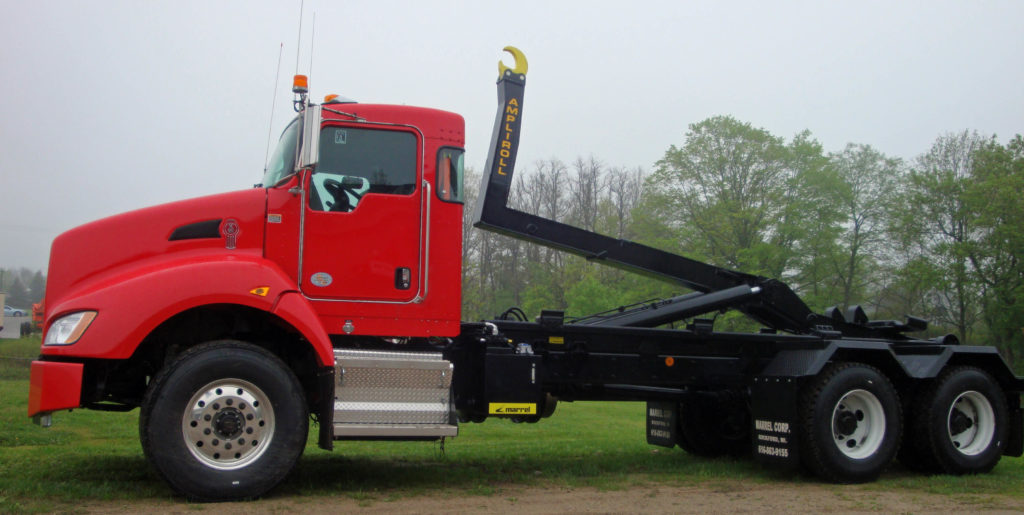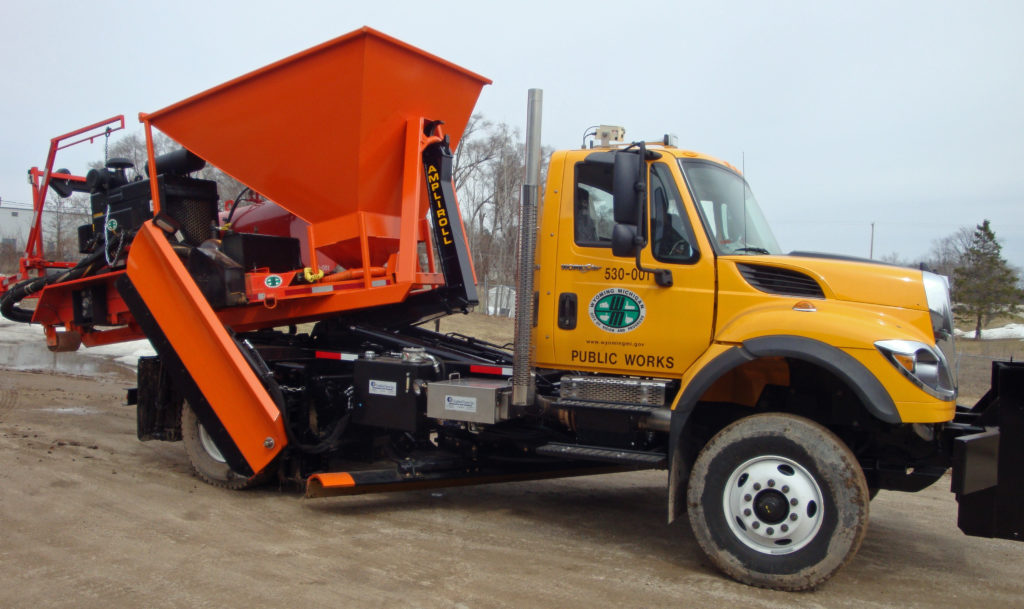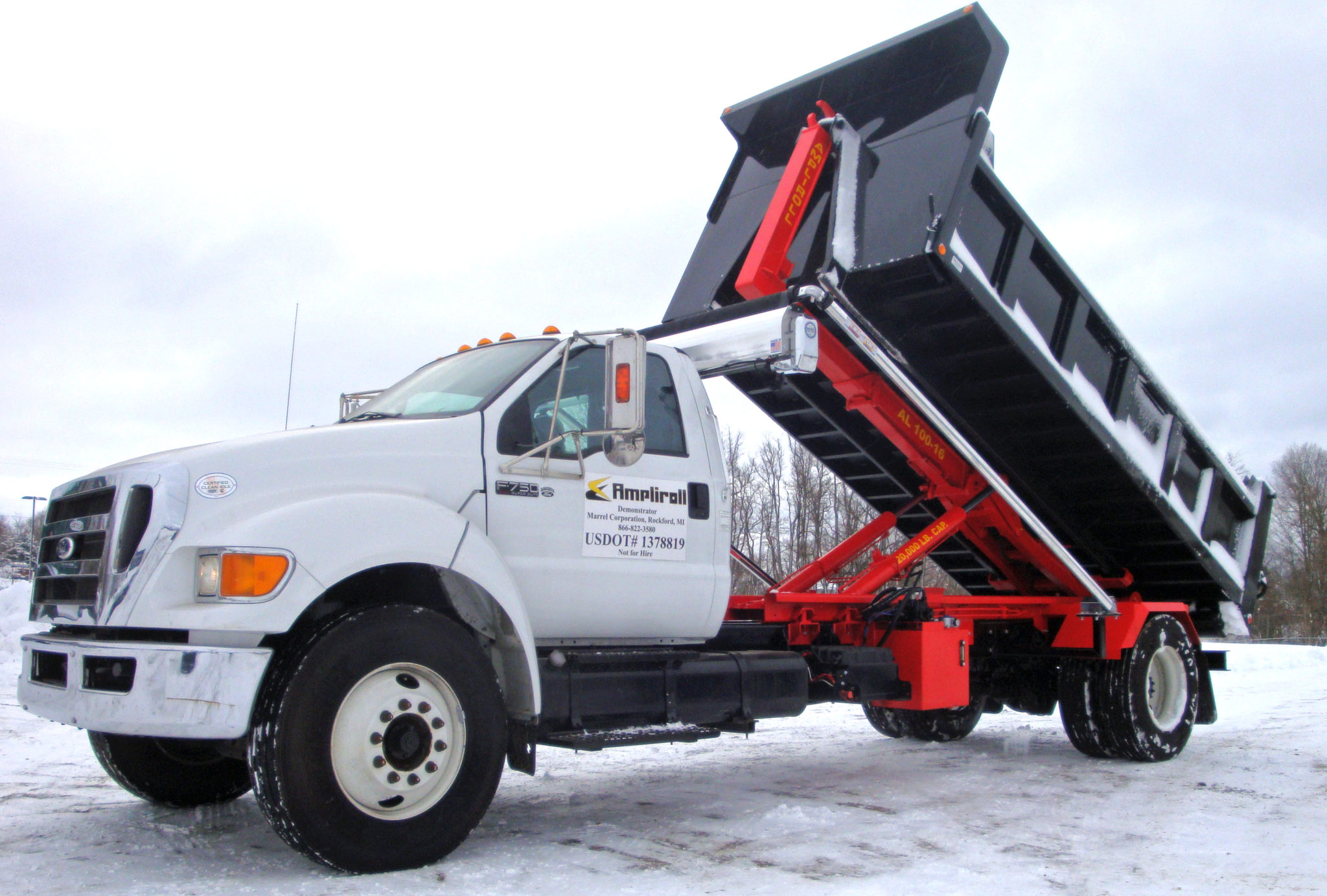Blog
In a previous post, we noted the popularity of both hydraulic hooklift systems and roll-on cable-hoist loaders for trucks because of their efficiency. Contractors, scrap…Read more
When comparing hydraulic hooklift systems to roll-on cable-hoist loaders for trucks, advocates of each type are eager to point out their respective advantages. Both systems,…Read more
Hydraulic hooklift-equipped trucks with interchangeable roll-on/roll-off bodies are an ideal system for scrap metal recycling. The needs of scrap recyclers Before getting into the unique…Read more
When contemplating the purchase of a hooklift system (to go with a chassis and various roll on/off truck bodies) for your contracting company, municipality, waste-hauling…Read more
You don’t have to work long in the contracting, municipal or waste hauling industries to learn the many advantages of hydraulic hooklift-equipped truck chassis. Just…Read more
Few users appreciate the day-after-day advantages of hydraulic hooklift systems more than those in the waste removal and recycling business. In the industry, truck…Read more
As a contractor, municipality, waste hauler or other user, you’ve decided to buy a hooklift system for your chassis with the intent of swapping out various truck bodies for greater utilization and a better payoff on your investment.
Many take the route of purchasing a hook loader from one dealer, truck bodies from another and related equipment like cranes from yet a third.
There’s a better way, and that’s relying on a single vendor for your hook loader and all hook loader-related equipment. Here are the advantages:
Many cities, counties and DOTs are finding themselves in a “perfect storm” of procurement challenges — low revenues offset by a high demand for services….Read more
The ease and speed with which drivers can pick-up and drop-off containers and other truck bodies with a hydraulic hooklift-equipped chassis make these systems attractive to waste haulers, municipalities, contractors and many others.
So, which cab control system is optimal? With fewer moving parts, electric controls may get a slight nod by some for reliability. That said, they’re the most expensive. What’s more, they don’t allow “feathering” or controlling the load by fingertip adjustments.

